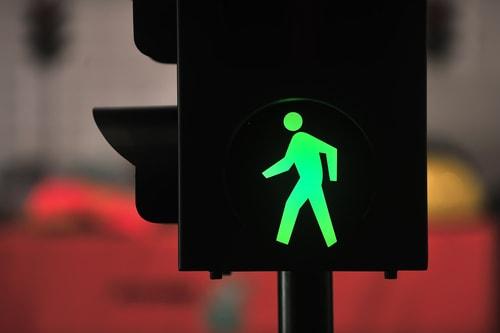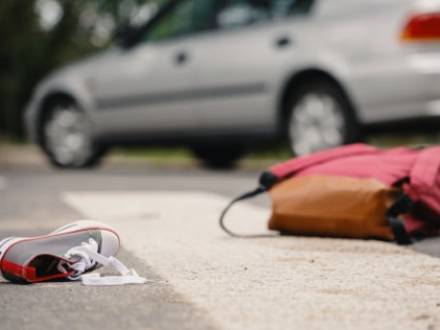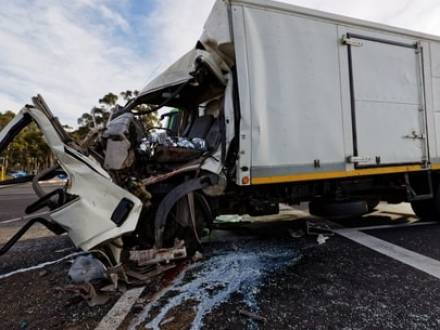Follow Us |Facebook
Call or Text for a Consultation
Recent Blog Posts
Determining Liability for a Slip and Fall Accident
 Liability for a slip-and-fall accident usually depends on whether a property owner failed to take proper precautions. Property owners are expected to keep their spaces reasonably safe for visitors. When they do not, serious injuries can happen.
Liability for a slip-and-fall accident usually depends on whether a property owner failed to take proper precautions. Property owners are expected to keep their spaces reasonably safe for visitors. When they do not, serious injuries can happen.
Slip-and-fall incidents can have devastating consequences, especially for the more vulnerable members of the population. According to the Centers for Disease Control and Prevention, falls are the leading cause of injury for older adults, sending more than three million people to emergency departments each year.
If you were hurt in a fall in 2026, our Orland Park, IL premises liability lawyer can help. At Issa Law, LLC, we’ll take a look at your case to help you understand your legal options.
Who Is Responsible for a Pedestrian Accident?
 Pedestrian accidents often cause serious injuries because pedestrians have little protection against impact from a vehicle. As of 2026, Illinois still uses fault-based rules in pedestrian accident cases. This makes the details of the crash especially important. Deciding who is responsible for a collision depends on who failed to follow traffic laws or act safely at the time of the crash. While drivers are often at fault, responsibility is not automatic and depends on the facts.
Pedestrian accidents often cause serious injuries because pedestrians have little protection against impact from a vehicle. As of 2026, Illinois still uses fault-based rules in pedestrian accident cases. This makes the details of the crash especially important. Deciding who is responsible for a collision depends on who failed to follow traffic laws or act safely at the time of the crash. While drivers are often at fault, responsibility is not automatic and depends on the facts.
Pedestrian crashes remain a serious safety issue. In a report released in 2025, the Governors Highway Safety Association estimated that more than 7,100 pedestrians were killed in motor vehicle crashes in a single year. If you were hit by a vehicle, our Orland Park, IL pedestrian accident lawyer can help review what happened and who may be responsible.
Do I Get Paid for My Suffering After a Serious Car Accident in Illinois?
 A serious car accident can affect far more than your physical health. Dealing with long-term pain, emotional stress, and limits on daily activities is an unfortunate possibility. Illinois law often allows you to seek compensation for these losses. This may include payment for pain and suffering. An Orland Park, IL car accident lawyer can help you understand how these damages work and whether they may apply to your case.
A serious car accident can affect far more than your physical health. Dealing with long-term pain, emotional stress, and limits on daily activities is an unfortunate possibility. Illinois law often allows you to seek compensation for these losses. This may include payment for pain and suffering. An Orland Park, IL car accident lawyer can help you understand how these damages work and whether they may apply to your case.
What Does "Pain and Suffering" Mean After a Car Accident?
"Pain and suffering" is a term used to describe the physical and emotional effects of an injury. Physical pain can come from the medical treatment you had to undergo, as well as the injury itself. Emotional effects can include anxiety, frustration, trouble sleeping, or loss of enjoyment in everyday activities. Serious injuries often make these effects stronger and longer-lasting.
What If the Dog Owner Says I Provoked the Dog in Illinois?
 Dog owners sometimes try to avoid responsibility for an attack by saying the victim provoked their dog. This can be frustrating, especially when you are already dealing with pain, medical bills, and fear after being attacked by a dog. With the help of our Orland Park, IL dog bite injury lawyer, you can prove negligence and build a case for the compensation you deserve.
Dog owners sometimes try to avoid responsibility for an attack by saying the victim provoked their dog. This can be frustrating, especially when you are already dealing with pain, medical bills, and fear after being attacked by a dog. With the help of our Orland Park, IL dog bite injury lawyer, you can prove negligence and build a case for the compensation you deserve.
Can Dog Owners in Illinois Avoid Liability by Claiming the Victim Provoked the Dog?
Illinois has strong legal protections for people who are hurt by dogs. Under the Illinois Animal Control Act, located in 510 ILCS 5/16, a dog owner is usually responsible for injuries caused by their dog. This rule is called strict liability. It means the owner can be held responsible even if the dog never acted aggressively before.
Does the Store Owner Have To Pay if I Fall on a Wet Floor in Illinois?
 Slip-and-fall accidents happen every day. Sometimes, you get right back up, and other times, you may suffer serious injuries. In Illinois, if you slip and fall in a store, you may be able to hold the store owner responsible if their carelessness led to your injuries. The experienced Orland Park, IL slip and fall lawyer at Issa Law, LLC can help you determine whether the store owner needs to pay for your damages and guide you through your legal options.
Slip-and-fall accidents happen every day. Sometimes, you get right back up, and other times, you may suffer serious injuries. In Illinois, if you slip and fall in a store, you may be able to hold the store owner responsible if their carelessness led to your injuries. The experienced Orland Park, IL slip and fall lawyer at Issa Law, LLC can help you determine whether the store owner needs to pay for your damages and guide you through your legal options.
What Does Illinois Law Say About Store Owner Liability?
Under the Illinois Premises Liability Act, business owners must keep their property reasonably safe for customers and guests. This includes cleaning up spills quickly and posting warning signs when the floor is slippery. Store owners also have to perform regular inspections to identify and fix hazards before someone gets hurt. If they fail to do this and you get hurt, they can be held legally responsible.
Can I File Both a Wrongful Death Claim and a Survival Action in Illinois?
 When a loved one dies due to negligence or misconduct, it can leave you with severe emotional and financial distress. No law can cure the emotional damage, but there are avenues for recovering monetary compensation.
When a loved one dies due to negligence or misconduct, it can leave you with severe emotional and financial distress. No law can cure the emotional damage, but there are avenues for recovering monetary compensation.
Based on the details of your case, you may be able to recover compensation through both a wrongful death claim and a survival action. These processes are very closely related, but they do not address the same losses. An experienced Orland Park, IL wrongful death lawyer can guide you through the claims and help you understand the losses you can recover.
What Is the Difference Between a Wrongful Death Claim and a Survival Action?
Illinois law recognizes two different legal claims when someone dies because of another party’s actions. A wrongful death claim, under the Illinois Wrongful Death Act, is brought by the personal representative of your loved one’s estate. This type of claim is meant to compensate surviving family members for the losses they suffer, including financial support, companionship, and emotional suffering.
Who Is Liable for a Swimming Pool Injury in Illinois?
 Not all swimming pool injuries are the result of someone else’s negligence. However, if you or a loved one has been injured in a pool accident, you might have a valid personal injury claim for compensation. Under Illinois law, the pool owner could be liable. An experienced Orland Park, IL premises liability attorney can help you determine whether you have a valid claim and pursue compensation for your injuries.
Not all swimming pool injuries are the result of someone else’s negligence. However, if you or a loved one has been injured in a pool accident, you might have a valid personal injury claim for compensation. Under Illinois law, the pool owner could be liable. An experienced Orland Park, IL premises liability attorney can help you determine whether you have a valid claim and pursue compensation for your injuries.
Applying Premises Liability Law To Swimming Pool Accidents in Illinois
When a swimming pool accident occurs, premises liability law determines whether the property owner or another responsible party can be held accountable. Under the Illinois Premises Liability Act, property owners must exercise reasonable care to protect people from foreseeable dangers, including unsafe conditions around swimming pools. If they fail to correct hazards or warn visitors about the danger, the owner may be liable for resulting injuries. For example, if a hotel leaves a broken pool light unrepaired and a guest is injured due to poor visibility, the hotel could be held responsible.
Can You Get a Serious Injury Even From a Minor Car Accident in Illinois?
 Car accidents do not have to be severe crashes to cause lasting harm. Even a low-speed collision can leave you dealing with painful injuries, medical bills, and stress. An Orland Park, IL car accident lawyer can help you protect your rights and understand your options if you are hurt.
Car accidents do not have to be severe crashes to cause lasting harm. Even a low-speed collision can leave you dealing with painful injuries, medical bills, and stress. An Orland Park, IL car accident lawyer can help you protect your rights and understand your options if you are hurt.
What Are Some Common Serious Injuries That Can Result From a Minor Car Accident?
People are often surprised to learn that significant injuries can result from a minor accident. You might feel okay at first, but symptoms can show up hours or days later. Some common injuries from minor accidents include:
-
Whiplash: Whiplash is a sudden back-and-forth movement of the neck that can impact muscles and ligaments, causing pain, headaches, and stiffness.
-
Concussions or mild traumatic brain injuries: Even small jolts can shake the brain, leading to memory issues, dizziness, or mood changes.
Are Pedestrian Accidents Worse for Children and the Elderly?
 Summer weather means more people are outside enjoying it. Whether in residential neighborhoods, at events, or elsewhere, many people enjoy walking while the weather is warm. Pedestrian accidents can happen to anyone, but children and older adults have specific characteristics that make them more likely to be hit and more vulnerable in these collisions. Catastrophic and fatal injuries are common.
Summer weather means more people are outside enjoying it. Whether in residential neighborhoods, at events, or elsewhere, many people enjoy walking while the weather is warm. Pedestrian accidents can happen to anyone, but children and older adults have specific characteristics that make them more likely to be hit and more vulnerable in these collisions. Catastrophic and fatal injuries are common.
If someone else’s negligence causes a pedestrian accident, injured victims or their families may have grounds to file a personal injury or wrongful death claim. These cases can be complex, and making a mistake could threaten your compensation. Our skilled Orland Park, IL pedestrian accident attorney can handle all aspects of your case and fight to help you secure maximum compensation.
Are Pedestrian Accidents Common in Illinois?
In 2023, there were 4,533 pedestrian accidents in Illinois. These collisions produced 195 deaths and 5,292 injuries. Although pedestrian crashes only accounted for 1.5 percent of all crashes in the state that year, they represented 17.3 percent of fatal and 6.8 percent of injury-producing accidents.
Are Semi-Truck Accidents More Likely to Hurt Car Occupants?
 Have you ever noticed that news reports about tractor-trailer crashes often mention injured motorists, but they rarely say that the truck drivers were hurt? Recent Illinois statistics back up that observation. Semi collisions can cause catastrophic injuries, some of which are fatal. When they result from another party’s negligence, our experienced Orland Park, IL personal injury attorney will fight to protect your best interests and see you collect the compensation you deserve.
Have you ever noticed that news reports about tractor-trailer crashes often mention injured motorists, but they rarely say that the truck drivers were hurt? Recent Illinois statistics back up that observation. Semi collisions can cause catastrophic injuries, some of which are fatal. When they result from another party’s negligence, our experienced Orland Park, IL personal injury attorney will fight to protect your best interests and see you collect the compensation you deserve.
What Do Statistics Say About Truck and Car Occupant Injuries in Collisions?
In 2023, there were 11,105 accidents involving tractor-trailers in Illinois. Occupants of other vehicles represented 76 percent of total deaths and 74 percent of incapacitating injuries in Illinois truck accidents in 2023. In comparison, semi-truck occupants accounted for only 13 percent of fatalities and 22 percent of incapacitating injuries.




